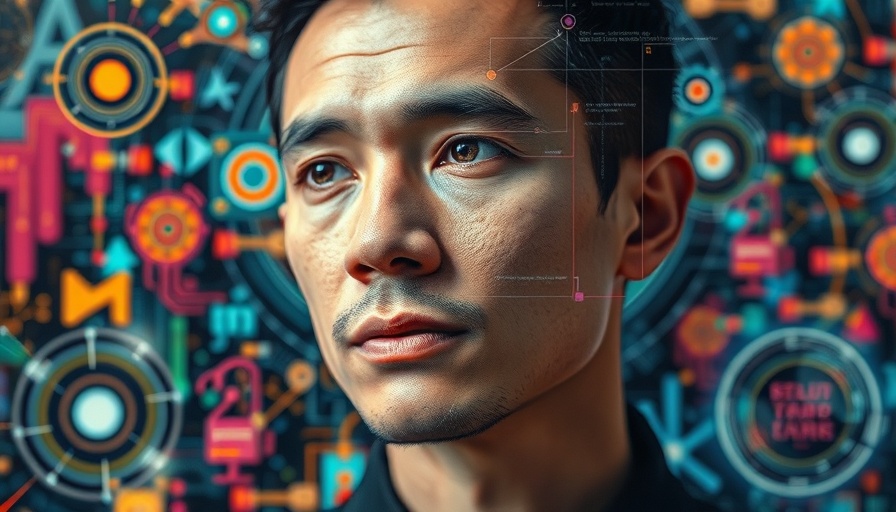
OpenAI Launches Sora 2: The Future of AI-Driven Creativity
In an era where artificial intelligence reshapes how we create and consume content, OpenAI has taken a significant step forward by unveiling the Sora 2 app, a social platform for short, AI-generated videos. This new app, akin to TikTok, allows users to produce delightful and engaging clips powered by the advanced capabilities of OpenAI's latest video generation model. The app’s launch reflects an ongoing trend within the tech industry aimed at pushing the boundaries of creative expression through automation.
Inside the Mechanics of Sora 2
The Sora 2 app enables users to create personalized videoclips lasting up to 10 seconds, enhanced by an intuitive vertical scrolling interface designed to mimic popular platforms like TikTok. However, the innovative twist in Sora 2 is its emphasis on user identity—individuals can upload a short video to verify their likeness. This feature is central to the application's 'cameos' setting, where friends can use each other's appearances in AI-generated narratives, promoting collaboration and creativity within the app.
Embracing AI in Small Business and Entrepreneurship
For entrepreneurs and business owners, tools like Sora 2 present not just a novel way to engage with audiences but also a myriad of potential applications in marketing and branding. As businesses increasingly look to harness AI automation, this cutting-edge platform allows them to produce engaging content swiftly, helping in capturing the attention of their target demographics. Leveraging such resources can yield creative campaigns and cultivate community engagement, particularly for small businesses exploring innovative methods of outreach.
The Competitive Landscape: How Sora 2 Compares
As Sora 2 enters a crowded field populated by titans like Google and Meta, it sets itself apart through its focus on AI-generated content and user consent. Unlike TikTok, which has recently tightened rules surrounding AI-generated content, Sora 2's consent-managed cameo feature allows users to curate their digital representations actively. This focus on responsible creation and ensuring user control over likeness might appeal to a more cautious audience looking for alternatives in the evolving social media landscape.
Addressing the Ethical Implications of AI-Generated Content
Critics have raised concerns about the risks associated with AI-generated media, particularly regarding user privacy and the potential for misuse. OpenAI attempts to address these ethical dilemmas by embedding consent at the app’s core. Users maintain authority over who can generate clips with their likeness and have the capability to revoke permissions at any moment. This approach not only safeguards individual integrity but also lays a foundation for trust in a digital environment increasingly swamped with deepfakes and misleading content.
A Glimpse into the Future of AI and Creativity
The Sora 2 app marks a pivotal moment for AI-driven creativity, showcasing a shift toward more immersive and interactive content production. As entrepreneurs begin to adopt these tools, the potential to innovate business communications, storytelling, and brand engagement escalates. The world may soon witness an unprecedented blending of technology and human creativity, where the lines between the virtual and real increasingly blur.
For small business owners, staying updated on groundbreaking platforms like Sora 2 can be the difference between leading and lagging in a rapidly evolving market. As AI continues to evolve, the potential applications are vast, encouraging a fresh generation of entrepreneurship shaped by creative exploration and technological innovation.
 Add Row
Add Row  Add
Add 




Write A Comment